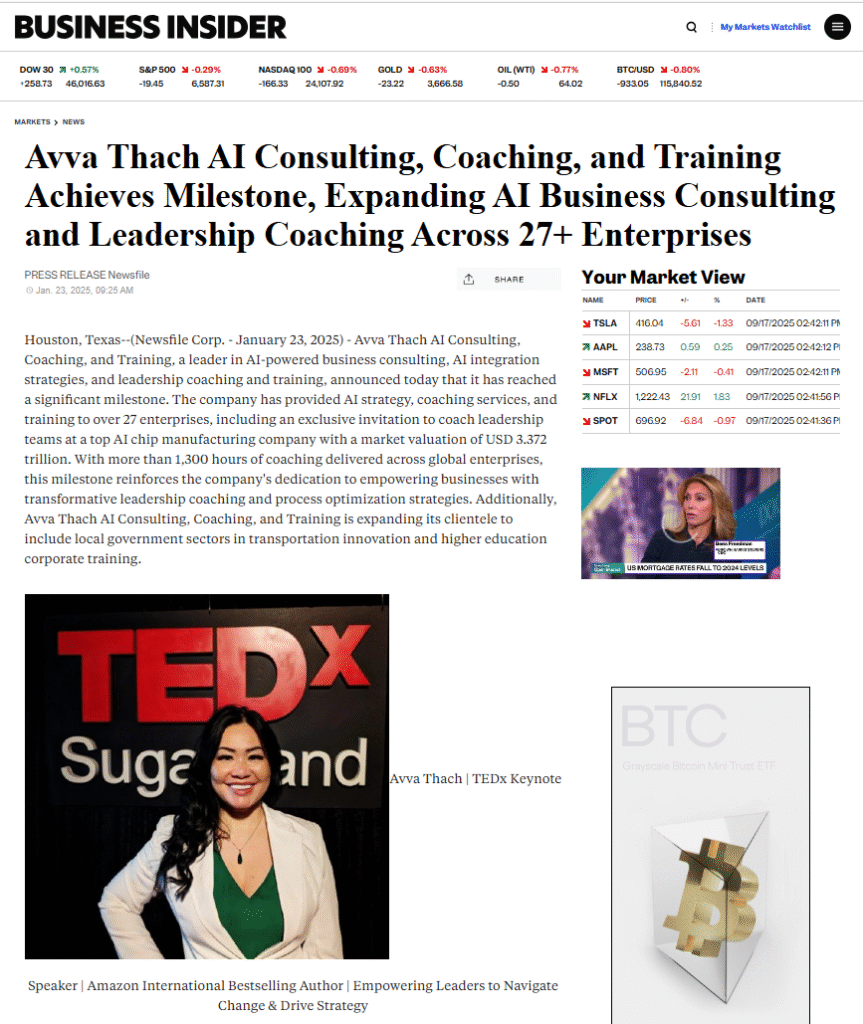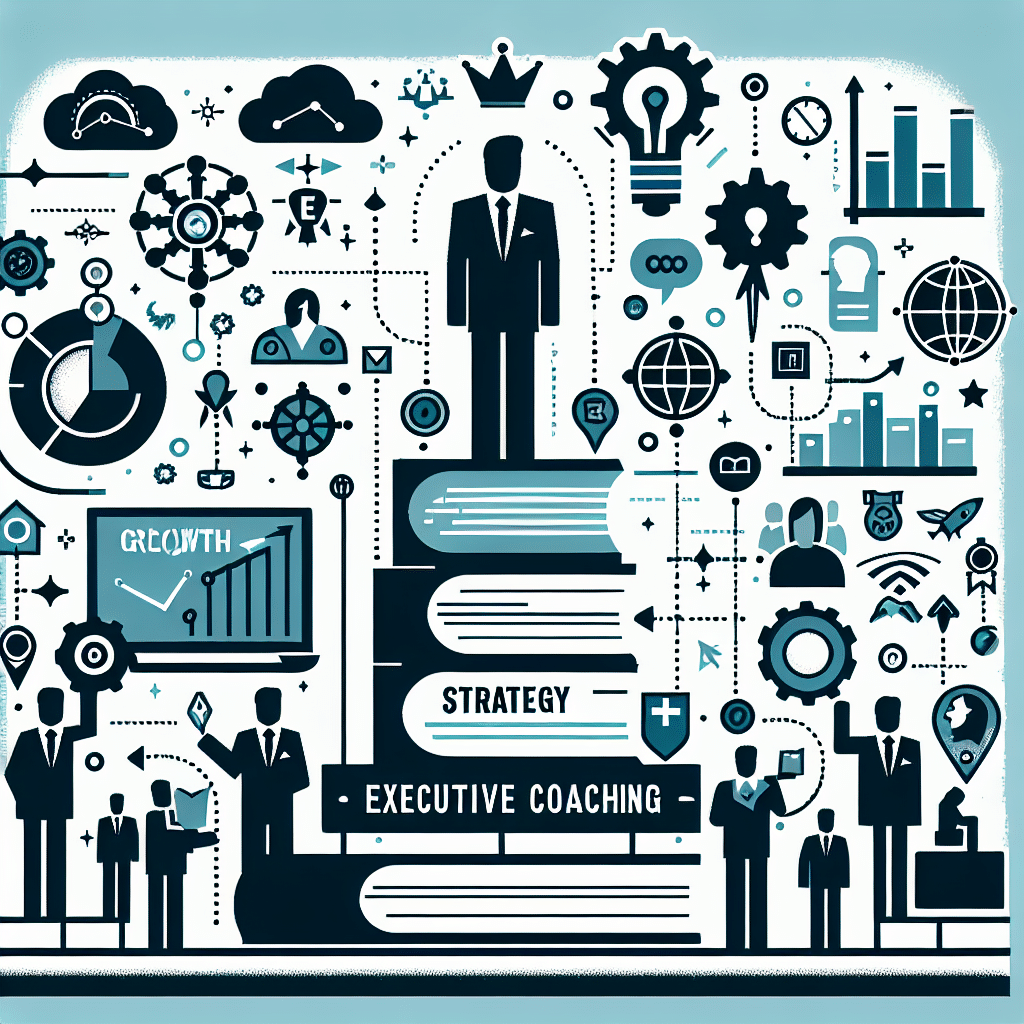Maximizing Executive Performance Through Strategic Coaching
Introduction
Welcome to the world of executive performance coaching, where high-stakes leadership meets strategic enhancement! In today’s fast-paced business environment, the demand for executive performance coaches is skyrocketing. Why? Because leaders need more than just a title; they need the skills and insights to drive their organizations forward.
Imagine a talented chef who knows all the recipes but struggles to manage the kitchen staff. That’s what it’s like for many executives brilliant in their domain but often lacking the leadership finesse required to inspire and optimize their teams. This is where an executive performance coach steps in, acting as both mentor and guide, helping leaders refine their skills and navigate complex challenges.
But what does it mean to engage an executive coach? Well, think of it as hiring a personal trainer for your career. Just as athletes rely on coaches to enhance their performance through tailored training regimens, executives can leverage coaching services to boost their leadership capabilities. From leadership training to conflict resolution, these professionals equip leaders with essential tools that lead not only to personal growth but also organizational success.
Did you know? According to recent studies, organizations that invest in executive coaching report a staggering 70% improvement in individual performance and 50% improvement in team effectiveness!
The journey of executive leadership development is not just about climbing the corporate ladder; it’s about mastering the art of influence, decision-making, and emotional intelligence. With the right support from an experienced coach, executives can transform into visionary leaders who inspire innovation and drive business growth.

So buckle up! In this blog post, we will explore how strategic coaching can maximize your executive performance and unlock your full potential as a leader.
The Importance of Executive Coaching
When it comes to unlocking the full potential of an organization, the role of an executive performance coach cannot be overstated. Think of them as the personal trainers for your leadership team, guiding them through the grueling workouts of corporate challenges and helping them emerge stronger and more effective.
So, what exactly is executive coaching? At its core, it’s a tailored process designed to enhance an executive’s leadership skills and overall effectiveness. This isn’t just about polishing resumes or improving communication; it’s about fostering a mindset geared towards growth, innovation, and high-performance outcomes.
Studies show that organizations that invest in executive coaching see a return on investment (ROI) of 500% or more.
Benefits of Engaging an Executive Performance Coach
- Enhanced Leadership Skills: From decision-making to conflict resolution, coaching helps executives sharpen their skills.
- Improved Organizational Effectiveness: A well-coached leader can drive their teams towards higher productivity and engagement.
- Personal Development: Coaches provide insights into emotional intelligence, resilience building, and time management strategies for executives.
- Career Advancement: With a focus on strategic leadership development, executives can position themselves for upward mobility within their organizations.
Statistics on Coaching Effectiveness
According to a study by the International Coach Federation (ICF), 70% of individuals who receive coaching report improved work performance.
This isn’t just fluff; these numbers reflect real-world transformations. The impact of engaging an executive performance coach extends beyond individual leaders it ripples through entire organizations. When leaders grow, so do their teams and the business as a whole.
A common misconception is that executive coaching is only for those in crisis or struggling with performance issues. In reality, even top-tier executives benefit immensely from regular coaching sessions. Just like athletes need coaches to refine their techniques continually, executives require ongoing support to navigate complex business landscapes.
If you’re considering investing in executive coaching services for your organization, remember this: it’s not just about addressing weaknesses but amplifying strengths. With the right coach by your side whether it’s through high-performance coaching or C-suite mentoring you’ll be equipped to tackle challenges head-on and drive significant business growth.
Key Components of Effective Executive Coaching
When it comes to maximizing executive performance, not all coaching is created equal. An effective executive performance coach knows that the secret sauce lies in a few key components that can transform a leader from good to great. Let’s break these down, shall we?
-
Personalized Coaching Plans
A one-size-fits-all approach? Forget it! Each executive has unique strengths, weaknesses, and goals. A tailored coaching plan ensures that the coaching services align with the individual’s specific needs. This is where the magic happens think of it as a bespoke suit for your leadership skills.
-
Goal Setting and Accountability
Setting clear, actionable goals is crucial. An executive performance coach helps leaders articulate what success looks like and then holds them accountable for achieving it. This isn’t just about lofty ambitions; it’s about creating measurable milestones that drive progress.
-
Feedback and Continuous Improvement
No one likes to hear criticism (ouch!), but constructive feedback is essential for growth. An effective coach provides ongoing feedback and encourages a culture of continuous improvement. This means regularly revisiting goals, celebrating wins, and recalibrating strategies as necessary like tuning a fine instrument to ensure peak performance.
-
Emotional Intelligence Development
In today’s corporate landscape, emotional intelligence (EI) is the name of the game. An effective executive coach focuses on enhancing EI skills such as empathy, self-awareness, and relationship management. By honing these skills, leaders can create more cohesive teams and foster an environment where innovation thrives.
-
Crisis Management Training
Let’s face it: crises happen! A savvy executive performance coach prepares leaders to navigate turbulent waters with grace under pressure. This includes developing decision-making skills for leaders during challenging times a vital capability for any C-suite executive.
-
Team Performance Optimization
An effective coaching program doesn’t just focus on the individual; it also emphasizes team dynamics. By improving communication skills among team members and fostering collaboration, executives can drive overall workplace performance enhancement.

Types of Executive Coaching Services Offered
When it comes to hiring an executive performance coach, it’s crucial to understand the various services they offer. Think of it like a buffet you want to pick what best suits your palate (or in this case, your professional needs). Here’s a breakdown of the most common types of coaching services available:
-
C-Suite Coaching Programs
Designed specifically for top executives, these programs focus on enhancing leadership effectiveness and strategic decision-making. With a tailored approach, C-suite coaching helps leaders navigate complex challenges while fostering innovation within their organizations.
-
Leadership Training and Development Initiatives
This type of coaching emphasizes the development of essential leadership skills. From emotional intelligence to conflict resolution, these initiatives are crafted to ensure that executives not only lead but inspire their teams toward success.
-
Corporate Coaching for Organizational Growth
Corporate coaching takes a holistic view by aligning individual goals with company objectives. By focusing on team performance optimization and productivity enhancement, this service aims to drive overall business growth through effective collaboration and communication.
-
High-Performance Coaching
This service is all about pushing boundaries. An executive success coach in high-performance coaching helps leaders develop resilience and adaptability, enabling them to thrive in fast-paced environments while achieving personal and organizational goals.
-
Executive Mentoring
Pairing seasoned executives with emerging leaders, executive mentoring fosters knowledge transfer and skill development. This relationship often leads to enhanced decision-making skills and improved conflict resolution strategies within the organization.
Skills Developed Through Executive Coaching
When you engage with an executive performance coach, you’re not just signing up for a few motivational chats over coffee. Oh no, my friend! You’re embarking on a transformative journey that equips you with skills that can redefine your leadership style and enhance organizational effectiveness. Here’s a breakdown of the essential skills honed through executive coaching:
- Decision-Making Skills for Leaders: Imagine being the captain of a ship navigating through stormy seas. An executive coach helps you sharpen your decision-making compass, ensuring you can steer your team toward success even in turbulent waters.
- Conflict Resolution Techniques for Executives: Picture this: two departments at odds like rival bands fighting over the last slice of pizza at a party. With coaching, you’ll learn to mediate conflicts and turn those rivalries into harmonious collaborations.
- Enhancing Communication Skills in Leadership Roles: Think of communication as the oil that keeps the machinery of your organization running smoothly. A business performance coach will help you articulate your vision clearly and inspire your team to follow suit.
- Cultivating Emotional Intelligence in Leadership Training: Emotional intelligence is like having a superpower in the corporate world. It enables leaders to connect with their teams on a deeper level, fostering trust and collaboration. Expect to develop empathy and self-awareness that will transform how you lead.
- Time Management Strategies for Executives: In today’s fast-paced environment, managing time effectively is crucial. Your executive success coach will provide tailored strategies to prioritize tasks, ensuring you’re not just busy but productive.
- Innovation and Creativity in Leadership Training Programs: Embrace your inner innovator! Coaching will empower you to think outside the box, encouraging creativity that drives business growth and keeps your organization ahead of the curve.
- Resilience Building for Executives: The corporate world can be tough like climbing Everest without oxygen! A skilled coach will teach you how to bounce back from setbacks, turning challenges into opportunities for growth.
- Goal Setting for Executives: Setting clear, measurable goals is key to success. With guidance from an executive mentoring expert, you’ll learn how to set ambitious yet achievable targets that align with both personal aspirations and organizational objectives.
The skills developed through executive coaching are not just theoretical they’re practical tools that lead to real-world results!
The beauty of these skills lies in their interconnectivity; mastering one often enhances another. For instance, improved communication skills can bolster conflict resolution efforts while emotional intelligence enriches decision-making capabilities. This holistic approach ensures that as you evolve into a more effective leader, your entire organization benefits from enhanced workplace performance.

The Role of Strategic Leadership Coaches in Business Growth
When it comes to scaling the heights of business growth, having a strategic leadership coach in your corner can be the secret sauce that transforms potential into performance. Think of them as the personal trainers for your corporate leaders, but instead of crunches and cardio, they focus on executive performance, decision-making skills, and emotional intelligence.
So, what exactly do these executive performance coaches bring to the table? Let’s break it down:
- Talent Management Strategies for Executives: A strategic leadership coach helps identify and harness the unique talents within your organization. By leveraging these strengths, they can create tailored talent management strategies that not only enhance individual capabilities but also align them with organizational goals. This means you’re not just filling positions; you’re building a powerhouse team ready to tackle any challenge.
- Productivity Enhancement for Leaders: Imagine if every meeting was productive and every project hit its deadlines. With the help of a business performance coach, leaders learn how to optimize their time management strategies and prioritize tasks effectively. This is where productivity enhancement comes into play coaches provide tools and techniques that help leaders cut through the noise and focus on what truly matters.
- C-Suite Coaching: For those at the top CEOs and senior executives C-suite coaching programs are tailored to address unique challenges faced by top-tier leadership. These programs often include high-performance coaching that hones skills like strategic decision-making, conflict resolution, and innovation in leadership.
- Organizational Development Coaching: A strategic leadership coach doesn’t just work with individuals; they also assess organizational dynamics. By facilitating workshops or training sessions focused on leadership excellence programs, they can help nurture a culture of collaboration and innovation across teams.
- Change Management Coaching: In an era marked by rapid change, having a coach who specializes in change management is invaluable. They equip leaders with resilience-building techniques and strategies to navigate transitions smoothly while keeping their teams engaged and motivated.
The impact of these coaching initiatives is profound. Companies that invest in executive coaching often see measurable improvements in employee engagement, retention rates, and overall business performance. In fact, research shows that organizations utilizing executive coaching services report a significant increase in productivity sometimes by as much as 70%!
Key Takeaway: Engaging a strategic leadership coach isn’t just about personal development; it’s about driving organizational growth through enhanced leadership capabilities. As you prepare for your next big challenge or transformation initiative, consider how an executive success coach could be pivotal to your strategy.
Measuring the Impact of Executive Coaching on Performance Improvement
When it comes to assessing the effectiveness of an executive performance coach, we need more than just a gut feeling or a pat on the back. Sure, that warm fuzzy feeling is nice, but what really matters are the numbers and tangible outcomes. So, how do we measure the impact of executive coaching on performance improvement? Buckle up; we’re diving into some metrics that matter!
Key Metrics for Evaluation
- Performance Metrics: These include KPIs related to productivity, project completion rates, and overall team performance. For instance, companies that engage in high-performance coaching often see a measurable uptick in productivity sometimes as much as 20%!
- Employee Engagement Scores: Coaching can lead to increased engagement among executives and their teams. Surveys conducted pre- and post-coaching can reveal significant shifts in employee satisfaction and commitment levels.
- Leadership Effectiveness: Utilizing 360-degree feedback tools can provide insights into how an executive’s leadership skills evolve over time. This feedback loop is crucial for understanding growth in areas like emotional intelligence and decision-making skills.
The Role of ROI in Executive Coaching
A common misconception is that measuring return on investment (ROI) from coaching is nearly impossible. However, savvy organizations are finding ways to quantify this elusive metric. Here are some strategies:
- Cost-Benefit Analysis: Compare the costs of coaching against improvements in financial performance metrics such as revenue growth or reduced turnover costs.
- Time Saved: Evaluate how much time executives save due to improved decision-making processes or enhanced conflict resolution skills gained through coaching.
- Cultural Impact: Assess changes in organizational culture by tracking shifts in collaboration and innovation following coaching interventions.
A staggering 86% of companies report that they recoup their investment in coaching within just one year!
The Importance of Continuous Feedback
The journey doesn’t end once the coaching sessions are over. Continuous feedback mechanisms help ensure that executives remain aligned with their goals and continue developing their leadership capabilities long after formal coaching has concluded. This ongoing support fosters a culture where learning never stops essential for any organization aiming for sustained success.

A Final Thought
The true measure of an effective executive coach lies not just in immediate results but also in long-term growth trajectories. By focusing on key metrics like productivity enhancements, employee engagement, and leadership effectiveness, organizations can ensure they are leveraging the full potential of their executive coaching services.
If you’re ready to take your team’s performance to new heights with a strategic leadership coach, consider reaching out today! The future of your organization depends on it.
Case Studies: Success Stories from Executive Coaching Engagements
Let’s dive into the tangible impact of working with an executive performance coach. These case studies highlight how strategic coaching can elevate leaders and organizations alike, transforming challenges into remarkable success stories.
Case Study 1: Transforming a Stagnant Tech Startup
A tech startup was struggling to gain traction in a competitive market. By engaging an executive success coach, the CEO underwent intensive leadership coaching focused on enhancing decision-making skills and fostering innovation. The results?
- Revenue growth of 150% within one year.
- A 40% increase in employee engagement scores, thanks to improved communication skills and emotional intelligence training.
- The launch of two new products that received rave reviews.
Case Study 2: Revitalizing Leadership in a Fortune 500 Company
This case involves a Fortune 500 company facing high turnover rates among its senior executives. They implemented a comprehensive C-suite coaching program, focusing on resilience building and conflict resolution techniques. The outcome was impressive:
- A reduction in turnover rates by 30% over 18 months.
- Enhanced team performance optimization, leading to improved project delivery times by 25%.
- Increased leadership effectiveness as measured by internal surveys, with scores rising from 65% to an impressive 85%.
Case Study 3: Elevating Performance in Healthcare Management
A healthcare organization recognized the need for improved management practices to enhance patient care. Engaging an organizational development coach helped them implement tailored leadership training programs:
- Patient satisfaction scores increased by over 20% within six months.
- The introduction of time management strategies for executives resulted in a significant decrease in appointment wait times.
- A culture shift towards continuous improvement and innovation emerged, driven by enhanced emotional intelligence among leaders.
The common thread across these success stories? Each leader embraced the opportunity for growth and transformation through targeted coaching strategies. As we look ahead, it’s clear that engaging with an experienced executive performance coach can unlock potential and drive extraordinary results across various sectors.
Conclusion: The Future of Executive Performance through Strategic Coaching
As we look to the future, the role of an executive performance coach is set to evolve in fascinating ways. The landscape of leadership is changing rapidly, driven by technological advancements and shifting workplace dynamics. In this new era, strategic coaching will not just be a luxury; it will be a necessity for organizations aiming to thrive.
Imagine a world where every executive has access to tailored leadership coaching, focusing on their unique challenges and aspirations. This personalized approach ensures that leaders are not only equipped with essential skills but also empowered to drive business growth coaching initiatives that resonate throughout their organizations.
The future will see an increased emphasis on transformational leadership coaching, where coaches help executives navigate complex change management scenarios. This involves not just enhancing traditional skills like decision-making and conflict resolution but also fostering emotional intelligence and resilience among leaders. After all, in a world that demands adaptability, emotional agility can be a game-changer.
Key Takeaway: Organizations investing in strategic coaching today are setting themselves up for success tomorrow. By leveraging the expertise of an executive success coach, they can ensure that their leaders are not only prepared for current challenges but also equipped to innovate for the future.
The integration of AI into executive coaching services is another exciting frontier. As organizations increasingly adopt AI-driven insights, the role of the coach will expand to include guiding executives on how to harness these technologies effectively. This means blending traditional coaching methods with cutting-edge tools that enhance workplace performance and optimize team dynamics.
Moreover, as we advance towards 2025 and beyond, there will be a stronger focus on measurable outcomes from coaching engagements. Companies will demand evidence of improved performance metrics as a result of their investment in executive coaching services. This shift towards accountability will lead to more structured programs focused on tangible results.
“75% of companies believe that effective training and coaching are essential for successful digital transformation.” (PwC)
In conclusion, embracing an executive performance coach is no longer about merely improving individual capabilities; it’s about fostering a culture of continuous improvement across all levels of leadership. Organizations that prioritize this strategic approach will find themselves ahead of the curve, ready to tackle whatever challenges lie ahead with confidence and competence.
“, “
: “” } ] }]}

















Leave a Reply